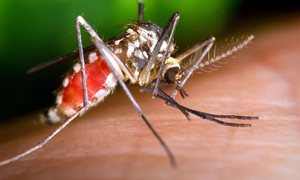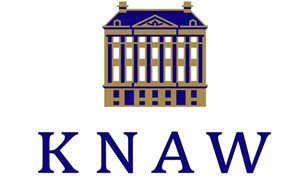
Researcher and parasitologist Matthijs Jore receives the Parasitology Prize for young researchers who have made innovative contributions to the field of medical parasitology. He received the prize at the symposium of the Netherlands Society for Parasitology. Jore is doing research on the development of a malaria vaccine that prevents transmission from humans to mosquitoes.
Malaria is a disease caused by parasites. These parasites enter the body during a bite from an infectious mosquito. In the Netherlands, malaria has been eradicated a long time ago, but especially in Africa, many people still suffer from this disease. More than half a million people die each year, mainly small children who have not yet developed immunity. Matthijs Jore, parasitologist at the Radboudumc: 'Unfortunately, the corona pandemic has slowed down the international programmes to control malaria, HIV and tuberculosis. The number of cases of these diseases has increased in recent years.’
Radboudumc does a lot of research on malaria. One of these studies focuses on transmission between humans and mosquitoes. Mosquitoes transmit the disease to people, and people who are infected cause new mosquitoes to become infected. Jore investigates how this cycle can be interrupted. ‘We found, here in Nijmegen, that a protein of the parasite could induce antibodies in animal models and that these antibodies blocked transmission to mosquitoes.’
Using that specific protein, Jore and colleagues are developing a new vaccine that prevents infection of mosquitoes. They also looked at naturally immune people: people who have acquired antibodies after exposure to malaria that block transmission to mosquitoes. By looking at which proteins these antibodies bind to, they discovered new potential candidates. His ultimate goal: 'We want to prevent mosquitoes from getting infected, because after infection mosquitoes can pass malaria on to other people. That is one way to eradicate malaria,' says Jore.
There are several candidate vaccines that target human-to-mosquito transmission. ‘We need those different candidates, we need to test them all. Because if we put all our research money into one vaccine, and it turns out not to work sufficiently in the final phase, we're back to square one.'
The prize that Jore is now receiving, the Boehringer Ingelheim Award, is awarded to researchers from Belgium, the Netherlands or Luxembourg in recognition and stimulation of scientific research in the field of veterinary or medical parasitology. A great honour, according to Jore. ‘It is a recognition of the research we do here in Nijmegen'.
More information
Pauline Dekhuijzen

wetenschaps- en persvoorlichter
Related news items

Joint research in regional hospitals New research projects from promotion fund
22 November 2022Four research projects have been honored in the promotion fund of the Radboudumc and four regional hospitals. The research projects, which are a collaboration between CWZ, Jeroen Bosch Hospital, Rijnstate, Sint Maartenskliniek and the Radboudumc will receive a contribution of 240,000 euros.
go to page
Grants for heart and kidney research Two awards to Radboudumc in Open Competition ENW-XS
21 July 2022Two researchers from the Radboudumc receive a grant from the NWO within the Open Competition of the Exact and Natural Sciences. They are Thijs Eijsvogels, who studies the heart, and Pieter Leermakers, who studies the kidneys.
go to page
Grants for research on magnesium deficiency and malaria Vidis for Felix Hol and Jeroen de Baaij
1 July 2022 Radboudumc researchers Jeroen de Baaij and Felix Hol both receive an NWO Vidi grant for their research, respectively on magnesium deficiency in type 2 diabetes and on malaria. go to page
Field research on malaria vaccine offers unexpected surprise
23 May 2022Field research on the effectiveness of a malaria vaccine, came up with unexpected results for an international group of researchers including Benjamin Mordmüller of Radboudumc. The vaccine evokes a broader response against malaria proteins than there are in the vaccine.
go to page
